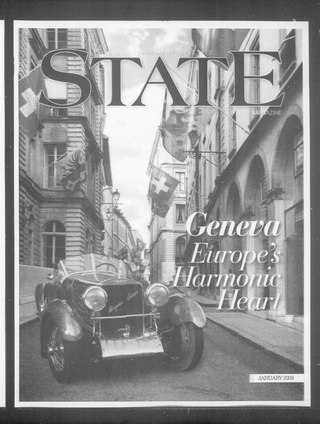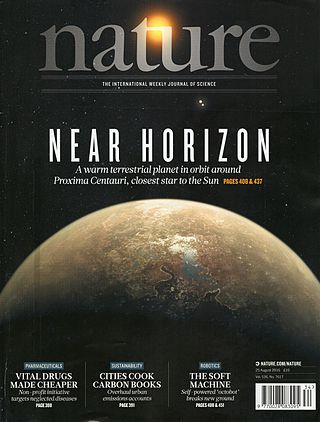
Central Europe is a geographical region of Europe between Eastern, Southern, Western and Northern Europe. Central Europe is known for its cultural diversity; however, countries in this region also share certain historical and cultural similarities.

Historiography is the study of the methods of historians in developing history as an academic discipline, and by extension is any body of historical work on a particular subject. The historiography of a specific topic covers how historians have studied that topic by using particular sources, techniques, and theoretical approaches. Scholars discuss historiography by topic—such as the historiography of the United Kingdom, that of WWII, the pre-Columbian Americas, early Islam, and China—and different approaches and genres, such as political history and social history. Beginning in the nineteenth century, with the development of academic history, there developed a body of historiographic literature. The extent to which historians are influenced by their own groups and loyalties—such as to their nation state—remains a debated question.
Musicology is the scholarly analysis and research-based study of music. Musicology departments traditionally belong to the humanities, although some music research is scientific in focus. Some geographers and anthropologists have an interest in musicology, so the social sciences also have an academic interest. A scholar who participates in musical research is a musicologist.

A magazine is a periodical publication, generally published on a regular schedule, containing a variety of content. They are generally financed by advertising, purchase price, prepaid subscriptions, or by a combination of the three.

Scientific American, informally abbreviated SciAm or sometimes SA, is an American popular science magazine. Many famous scientists, including Albert Einstein and Nikola Tesla, have contributed articles to it, with more than 150 Nobel Prize-winners being featured since its inception.

In academic publishing, a scientific journal is a periodical publication intended to further the progress of science, usually by sharing findings from research with readers. They are normally specialized based on discipline, with authors picking which one they send their manuscripts to.

New Scientist is a popular science magazine covering all aspects of science and technology. Based in London, it publishes weekly English-language editions in the United Kingdom, the United States and Australia. An editorially separate organisation publishes a monthly Dutch-language edition. First published on 22 November 1956, New Scientist has been available in online form since 1996.

Nature is a British weekly scientific journal founded and based in London, England. As a multidisciplinary publication, Nature features peer-reviewed research from a variety of academic disciplines, mainly in science and technology. It has core editorial offices across the United States, continental Europe, and Asia under the international scientific publishing company Springer Nature. Nature was one of the world's most cited scientific journals by the Science Edition of the 2022 Journal Citation Reports, making it one of the world's most-read and most prestigious academic journals. As of 2012, it claimed an online readership of about three million unique readers per month.

The University of Erfurt is a public university located in Erfurt, the capital city of the German state of Thuringia. It was founded in 1379, and closed in 1816. It was re-established in 1994, three years after German reunification. Therefore, it claims to be both the oldest and youngest university in Germany. The institution identifies itself as a reform university, due to its most famous alumnus Martin Luther, the instigator of the Reformation, who studied there from 1501 to 1505. Today, the main foci centre on multidisciplinarity, internationality, and mentoring.
Nature Portfolio is a division of the international scientific publishing company Springer Nature that publishes academic journals, magazines, online databases, and services in science and medicine.

Yerevan State University, also simply University of Yerevan, is the oldest continuously operating public university in Armenia. Founded in 1919, it is the largest university in the country. It is thus informally known as Armenia's "mother university". Of its 3,150 employees, 1,190 comprise the teaching staff, which includes 25 academicians, 130 professors, 700 docents, and 360 assistant lecturers. The university has 400 researchers, 1,350 post-graduate students, and 8,500 undergraduates, including 300 students from abroad.

The New York Academy of Sciences is a nonprofit professional society with the mission to advance scientific research and knowledge, support scientific literacy, and promote science-based solutions to global challenges. Founded in January 1817 as the Lyceum of Natural History, it is the fourth-oldest scientific society in the United States. The academy has more than 20,000 members in 100 countries.

BBC History is a British magazine devoted to both British and world history, and aimed at readers of all levels of knowledge and interest. There are thirteen issues a year, one each month and a Christmas special. The magazine is published, under licence from the BBC, by the Immediate Media Company. BBC History is the biggest-selling history magazine in the UK.

History Today is an illustrated history magazine. Published monthly in London since January 1951, it presents serious and authoritative history to as wide a public as possible. The magazine covers all periods and geographical regions and publishes articles of traditional narrative history alongside new research and historiography. A sister publication History Review, produced tri-annually until April 2012, provided information for sixth-form history students.

History is the systematic study and documentation of the human past.

The Historian is a history journal published quarterly by Taylor & Francis on behalf of the history honor society, Phi Alpha Theta. The journal was established in 1938. The Historian publishes original articles and book reviews in all areas of historical scholarship.
Institute of Baltic Region History and Archaeology is the scholarly research subdivision of Klaipėda University. It was established in 2003, following reorganization of the former Centre for the History of Western Lithuania and Prussia, which functioned in the period 1992 to 2003
The Leibniz Institute of European History (IEG) in Mainz, Germany, is an independent, public research institute that carries out and promotes historical research on the foundations of Europe in the early and late Modern period. Though autonomous in nature, the IEG has close connections to the Johannes Gutenberg University Mainz. In 2012, it joined the Leibniz Association.

Haus der Geschichte is a museum of contemporary history in Bonn, Germany. With around one million visitors every year, it is one of the most popular German museums. The Haus der Geschichte is part of the Haus der Geschichte der Bundesrepublik Deutschland Foundation, alongside the "Zeitgeschichtliches Forum Leipzig", the "Tränenpalast" at Berlin Friedrichstraße station and the "Museum in the Kulturbrauerei". The foundation's headquarters is in Bonn.
Eugen Ewig was a German historian who researched the history of the early Middle Ages. He taught as a professor of history at the University of Mainz and the University of Bonn. In the second half of the 20th century, he was considered the foremost expert on the Merovingian dynasty.















